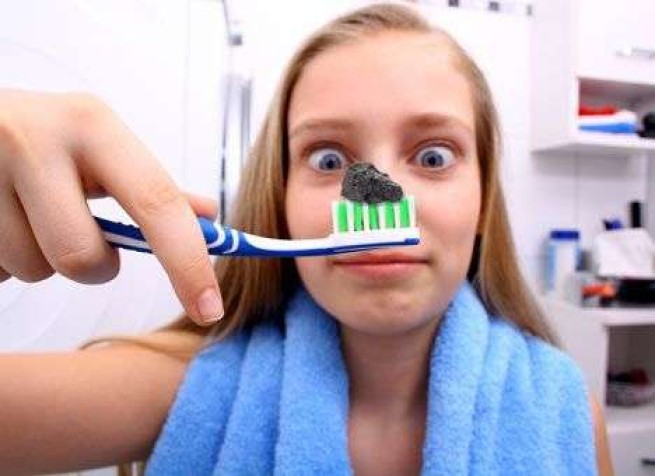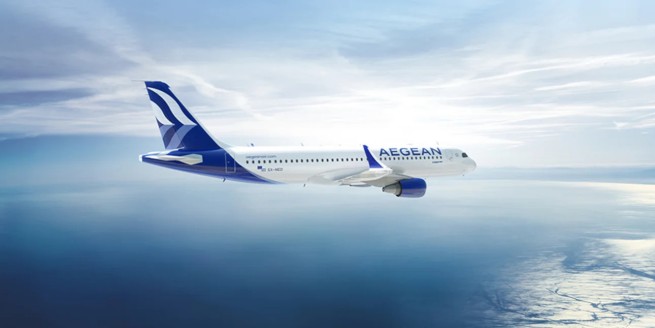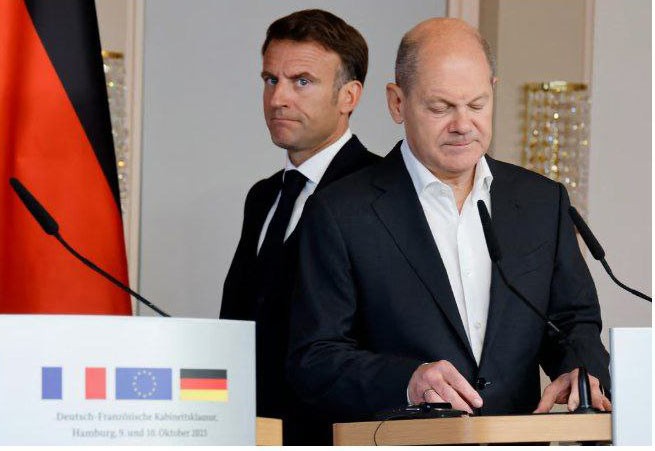Friction between German Chancellor Olaf Scholz and French President Emmanuel Macron over military aid to Ukraine is turning into something like “open hostility,” writes Politico.
From the very beginning of Russia’s full-scale invasion of Ukraine, German policy was dictated by one guiding principle: Avoid direct confrontation with Russia at all costs. But after a summit of European leaders in Paris on Monday, French President Emmanuel Macron showed no signs of caution. “We will do everything possible to prevent Russia from winning this war.”Macron told reporters. “Everything is possible”, he said, including sending Western troops to Ukraine.
These comments stand in stark contrast to Chancellor Olaf Scholz, who made the opposite argument shortly before leaving for the summit in Paris, warning of the risk of a Russian reaction if his government sent long-range missiles to Ukraine “Taurus” German made. “We cannot be associated with the goals that this system can achieve, Scholz told reporters in Berlin. – This clarity is also necessary. I’m surprised that some people aren’t even bothered by this, that they don’t even think about the fact that what we’re doing could lead to being involved in a war.”
Germany is not alone in its reluctance to behave too provocatively towards Moscow. Since the start of the war, US President Joe Biden’s administration has also tried to walk a fine line, giving Ukraine the weapons it needs to defend itself, but not providing so many of them as to drag the US into a war with Russia.
On Tuesday, leaders of several NATO countries distanced themselves from Macron’s comments, saying they had no plans to send troops to Ukraine. But Germany’s fears of conflict with Russia are particularly strong. This is largely a consequence of history. The Russian threat has long loomed large in the German imagination. There is also an element of historical guilt. At the beginning of the war, Scholz delayed the decision to send German-made Leopard tanks to Ukraine, partly due to the strong pacifist tendency in the country.
The French have fewer such reservations, which is probably why Macron feels more comfortable talking about the possibility of Western troops on the ground – even if such a step seems far-fetched. On Tuesday, Scholz rejected any possibility of Western countries sending troops to defend Ukraine. “There will be no ground troops from European countries or NATO,” he tweeted.
We agreed that everyone must do more for Ukraine in Paris yesterday. Ukraine needs weapons, ammunition and air defence. We are working on it. It is clear: there will be no ground troops from European countries or NATO. That applies.
— Bundeskanzler Olaf Scholz (@Bundeskanzler) February 27, 2024
Franco-German feud
Friction between Scholz and Macron over military aid to Ukraine is escalating into open hostility. German officials complain that while Macron is willing to talk tough on Ukraine, he is not taking enough action compared to what Berlin is doing. The Kiel Institute of Germany, which collects data on countries’ contributions to the military operations in Ukraine, considers France to be a clear lagging stateWith 640 million euros in military aid, compared with Germany, which provided or promised 17.7 billion euros.
That is why Scholz takes every opportunity to force countries EU – and especially France – to send Ukraine more weapons and ammunition. French officials counter that they supply the weapons that really matter, and do so with less hesitation than the Germans.
They cite Scholz’s reluctance to send Taurus missiles as an example. France committed to sending its SCALP cruise missiles in July, after the UK sent its Storm Shadows in May. These missiles are comparable to the Taurus, although the German cruise missile is believed to have a longer range and a warhead that would make it useful against targets such as the Kerch Bridge connecting Russia and occupied Crimea.
Ukrainian leaders are pleading for the missiles, especially as ammunition shortages mount, and U.S. Congressional Republicans are blocking a $60 billion military aid package for the country. Earlier this month, Ukrainian troops were forced to retreat from the town of Avdiivka due in part to a shortage of artillery shells, giving Moscow its biggest battlefield success in months.
The Ukrainians want Taurus missiles to hit Russian positions and supply lines deep behind the front line.
But German officials say Taurus deliveries will require the direct involvement of German troops on the ground to program the missiles. But Gustav K. Gressel, a senior fellow at the European Council on Foreign Relations, said Ukrainians could be trained to use the Taurus without the need to send German soldiers to Ukraine.
After the Paris summit on Monday, Macron appeared to lash out at Scholz for Germany’s historic hesitance to send weapons to Ukraine. “Many of those who say “never, never” today were the same people who two years ago said “never, never tanks, never, never airplanes, never, never long-range missiles, never, never this,” said Macron. In an apparent reference to Germany’s much-discussed offer, made shortly before Russia began its invasion of Ukraine, to send 5,000 helmets, Macron added: “I remind you that two years ago many around this table said, ‘We will offer sleeping bags and helmets.’ “.
But regarding the Taurus missiles, Scholz was adamant that it would be difficult to concede. One possible opening would be for the US to send more ATACMS ballistic missiles to Kyiv, as Berlin tends to lag behind Washington in arming Ukraine. Berlin also refused to send Leopard tanks to Ukraine until it received information that the US would send its M1 Abrams tanks.







More Stories
Paris: wild clashes between police and "black" block
Modern Germans are far from the most hardworking in Europe
Georgia: Opposition leaders were brutally beaten by security forces (video)